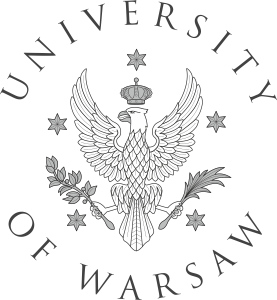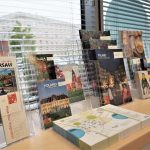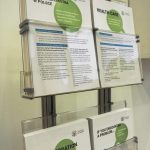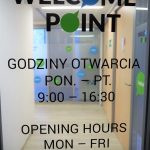Fighting obesity
17 listopada 2020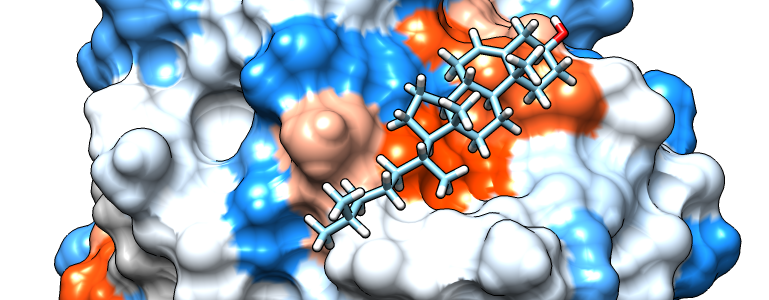
Obesity is a risk factor for diseases such as type II diabetes, heart disease and fatty liver disease. An international research team, to which researchers from the UW Faculty of Chemistry belong, identified a new factor that offers a potential new therapeutic strategy for obesity. Their study has now been published in the prestigious journal “Nature Metabolism”.
According to the World Health Organisation, obesity has reached epidemic proportions globally, with at least 2.8 million people dying each year as a result of being overweight or obese. A central element in the development of obesity is adipose tissue, which comprises fat cells (so-called adipocytes, specialised to store fat) and macrophages (immune system scavenger cells, which are typically associated with the destruction of microbes).
Scientists from Austria, together with researchers from Germany and Australia, and a team of scientists from the University of Warsaw have discovered the signalling pathways responsible for the development of a valuable type of adipose tissue macrophage (ATM) in obesity, which prevents lipotoxicity. Lipotoxicity is the process whereby fat molecules are deposited in non-adipose tissues.
Like Dr. Jekyll and Mr. Hyde
The researchers working at the UW Faculty of Chemistry: Dr. Maria Górna, Dr. Marta Kulik and Prof. Paulina Dominiak, specifically studied the PI3K signalling pathway. This is a major metabolic regulator, since it regulates fat storage and plays a major role in the cellular reaction to the hormone insulin. In obesity, diminished insulin action or insulin resistance leads to type II diabetes, which is linked to high blood glucose levels.
Dr. Gernot Schabbauer from the Institute of Vascular Biology and Thrombosis Research at MedUni Vienna’s Center for Physiology and Pharmacology has been studying the PI3K signalling pathway in immune cells for several years. “The key role of PI3K in metabolic processes is proven but its role in adipose tissue macrophages was hitherto unclear,” stresses Dr. Schabbauer.
“ATMs are like Dr Jekyll and Mr Hyde – in obesity, they can either be good or bad. We assumed that an active PI3K signalling pathway could tip the balance in favour of ‘good’,” adds Julia Brunner, co-lead of the study.
Using techniques such as multicolour flow cytometry, lipidomics, cellular respiration tests and several animal models, the scientists discovered that sustained activity of the PI3K signalling pathway can tip the balance within macrophages for the better: this notably produces specialised ATMs, which are characterised by increased numbers of MARCO (macrophage receptor with collagenous structure) scavenger receptors on their surface.
Scavenger receptor
“We discovered that these MARCO-expressing ATMs are professional lipid scavengers. These cells absorb fat MARCO-dependently and break it down, thereby preventing it from finding its way into the bloodstream,” explains Andrea Vogel, co-lead author of the study and doctoral candidate in immunology at MedUni Vienna. Omar Sharif, a co-senior author of the study, adds: “Metabolic syndrome and lipotoxicity are characteristic features of obesity. Our work indicates that a higher lipid intake and improved energy metabolism of the ATMs helps to maintain systemic metabolic health. This can have far-reaching impacts for a number of metabolic diseases.”
The researchers from the University of Warsaw analysed the structure of MARCO and assessed its potential for lipid binding. “It is a receptor known for binding and cleaning up as diverse objects as bacteria or oxidized Low-density lipoprotein, but its role in buffering lipids is new”, says Maria Górna. “This study is only the beginning of our collaboration with colleagues from Austria, and we have ideas on how to next test the direct involvement of MARCO in lipid uptake.”
Subsequent studies will now be conducted to establish whether PI3K signalling can also have a lasting influence on the ATM population in humans.
Article in “Nature Metabolism”
“The PI3K pathway preserves metabolic health through MARCO-dependent lipid uptake by adipose tissue macrophages”, “Nature Metabolism”, https://doi.org/10.1038/s42255-020-00311-5
Source: www.en.uw.edu.pl
Seminar CeNT 20.11.2020
13 listopada 2020The Centre of New Technologies invites to a webinar by
Prof. Syma Khalid,
School of Chemistry, University of Southampton
Title: Computational Microbiology of the E. coli Cell Envelope
Date: 20th November 2020 (Friday)
Time: 12:00 pm (Central European Time)
Host: prof. Joanna Trylska
Virtual seminar: https://us02web.zoom.us/j/88907066384
CeNT-UW-Webinars-instruction-for-attendees
Abstract: https://symakhalidresearchgroup.wordpress.com/syma-khalid-group-leader/
BUW is closed for readers
10 listopada 2020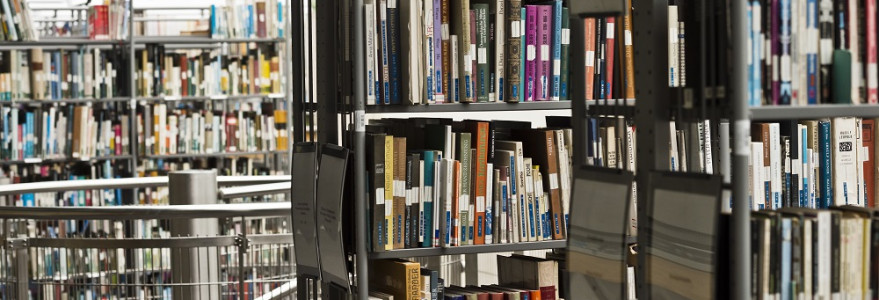
The University of Warsaw Library (BUW) remains closed until 29th November due to the restriction on the operation of public and scientific libraries introduced by Poland’s Council of Ministers.
Those who borrowed books can return them later.The return dates for borrowed books, Kindle readers and keys to individual work booths have been postponed to 15th December. There will be no charges for books overdue from 7th to 29th November.
Books ordered earlier than 7th November and reservations ready for pick-up, can be collected by 4th December (it applies to the Circulation Desk and the Reading Room).
The possibility of ordering books from BUW as well as requesting keys to the individual work booths have been disabled, but they can still be booked.
Students, doctoral candidates and employees of UW can still order scans for free. Scanning service is available for users with active library accounts at the University of Warsaw Library, with no overdue library (BUW) materials, and with no fees charged by the University of Warsaw Library. More information >>
Also, it is still possible to use to the wide range of electronic resources of BUW: e-journals, e-books and databases. More information>>
Źródło: www.en.uw.edu.pl
Crimes motivated by prejudice

On 17th November, Welcome Point is organising an online meeting with the Association for Legal Intervention on crimes motivated by prejudice.
The programme of the event includes the following parts:
- A 45- minute presentation about bias crimes, rights and obligations of a victim, and situations when the police are obliged to act,
- A 20-minute practical exercise on descriptions of specific behaviours: Is this a crime?
- Participants’ questions (25 minutes).
The meeting will be held on 17th November at 1.30 pm.
To participate, please fill in the registration form >>
Registration will be open until 12th November. To learn more, visit the Welcome Point website: www.welcome.uw.edu.pl.
Source: www.en.uw.edu.pl
PostDoc position is available in Grela’s group
PostDoc position is available in Grela’s group from the FNP TEAM-TECH programme „Catalysis for the Twenty-First Century Chemical Industry”. Project leader: prof. dr hab. eng. Karol Grela. Deadline for applications: 10 December 2020. For more info see >> pdf
First weeks of Welcome Point in Ochota
06 listopada 2020Welcome Point is an information point where everyone can get help and information during their stay at the University of Warsaw. There are two locations of this unit. First WP office is available on the main campus, and the second one operates on the campus in Ochota.
The new Welcome Point was open on the campus in Ochota district two weeks ago. Students from Russia, Armenia, India, Thailand and Ukraine, who get education at UW, visited it seeking help and guidance. They were interested in finding information on, e.g. library services under pandemic restrictions, scholarships, students’ union, dormitories and the procedures regarding registration for classes and lectures.
Incoming students are welcome with small gifts, including student packs and tourist information regarding our university, Warsaw and Poland. The new spot in Ochota facilitates access to information and advice for exact and natural sciences students and those who live in dormitories at Żwirki i Wigury Street.
“I am glad that Welcome Point is also on the campus in Ochota now. We can complete all the formalities related to, e.g. the employment of international scientists much faster and more efficiently, and above all, here, on the spot. We can save a lot of time,” says Professor Ryszard Kutner, who invited a visiting lecturer Dr. Zbigniew Struzik to the UW Faculty of Physics (It was possible thanks to the University’s Integrated Development Programme (ZIP).
Welcome Point remains open for visitors who follow precautionary measures on:
- wearing a mask,
- keeping a safe distance from other people (2 meters),
- using hand sanitizers.
Due to a dynamic situation, the Welcome Point team asks to make an appointment by e-mail before visiting the office. All the matters which do not require in-person contact should be handled by e-mail or by sending a message on the Welcome group on Facebook.
The new spot of Welcome Point is situated on the ground floor of the CeNT building (on the campus in Ochota district), open from Monday to Friday, 9:00 am – 4:30 pm.
Source: www.en.uw.edu.pl
4EU+ Online Annual Meeting
04 listopada 2020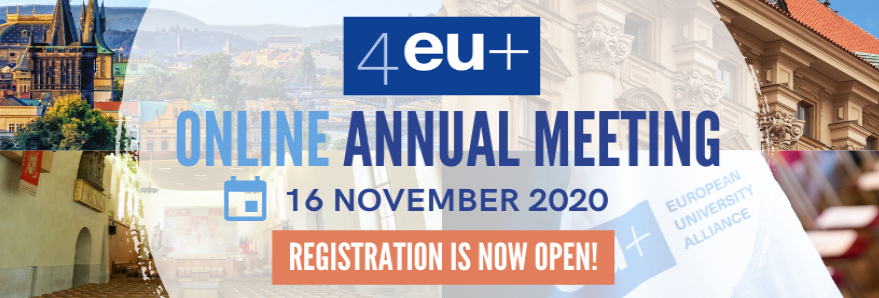
On 16th November, the Annual Meeting of the 4EU+ Alliance will be held as an online event. Organised by Charles University, the meeting will bring together academic leaders, students and staff of the six 4EU+ member universities who are actively involved in the development of the Alliance as well as representatives of the European Commission, Ministry of Foreign Affairs of the Czech Republic and 4EU+ Associated Partners.
The Annual Meeting will consist of the following parts:
- Micro think-tank sessions – various stakeholders from the 4EU+ community will explore selected topics of central relevance for the Alliance. The number of places for the micro think-tank sessions is limited. In parallel, the 4EU+ Governing Board will hold its regular meeting with the 4EU+ Management Committee and Vice-Rectors/Vice-Presidents of member universities.
- General Assembly – Rector of Charles University, Prof. Tomáš Zima, will officially take over the position of Chair of the 4EU+ Governing Board from the President of Sorbonne University, Prof. Jean Chambaz. During the General Assembly, the 4EU+ Academic Council will be officially inaugurated.
- Open session (16:00-18:00) – will be attended by the members of the 4EU+ community involved in 4EU+ activities as well as representatives of the European Commission, 4EU+ Associated Partners, ministries, other university alliances and organisations active in the Higher Education area. Anyone interested in getting to know the 4EU+ Alliance and its activities is welcome to join this session.
The registration form and conference programme are available at www.4euplus.eu.
Registration will be open until 12th November.
The language of the conference will be English. Translation and interpreting services will not be available.
In case of any questions, please do not hesitate to contact the local 4EU+ team at the University of Warsaw: 4euplus(at)uw.edu.pl.
Source: www.en.uw.edu.pl
Online meeting on the legalisation of stay
02 listopada 2020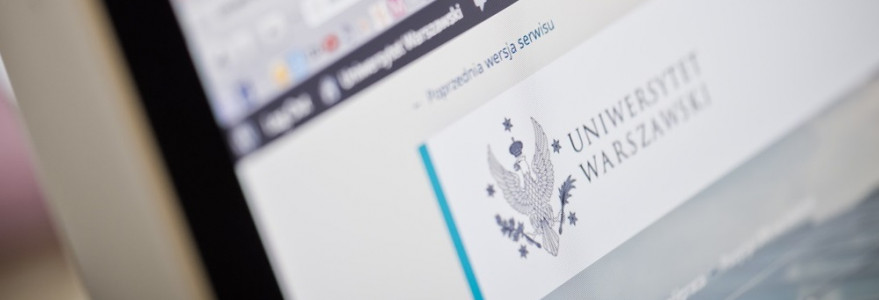
Welcome Point – an information service point for international students who start their education at UW – organises, together with the Association for Legal Intervention specialists, an online meeting on the legalisation of stay in Poland.
During the meeting, the following issues will be discussed:
- Differences between a visa and a temporary residence permit,
- The procedure for applying for a residence permit,
- Special solutions for foreigners introduced during the pandemic.
The event will last 90 minutes, 45 minutes of which will be dedicated to a Q&A session. To take part, please register by 5th November.
Meeting in English: 9th November, 1:30 pm, registration form >>
Meeting in Polish: 10th November, 1:30 pm, registration form>>
More information about the event is available on the Welcome Point website.
Source: www.en.uw.edu.pl
Seminar CeNT 6.11.2020
30 października 2020The Centre of New Technologies invites to a webinar by
Prof. Valentina Tozzini,
NEST-Consiglio Nazionale delle Ricerche-Istituto Nanoscienze, Scuola Normale Superiore, Pisa
Title: Graphene based systems beyond 2-dimensionality: perspectives and contemporary applications
Date: 6th November 2020 (Friday)
Time: 12:00 pm (Central European Time)
Virtual seminar: https://us02web.zoom.us/j/87185453081
Meeting ID: 871 8545 3081
CeNT-UW-Webinars-instruction-for-attendees
Coronavirus testing
26 października 2020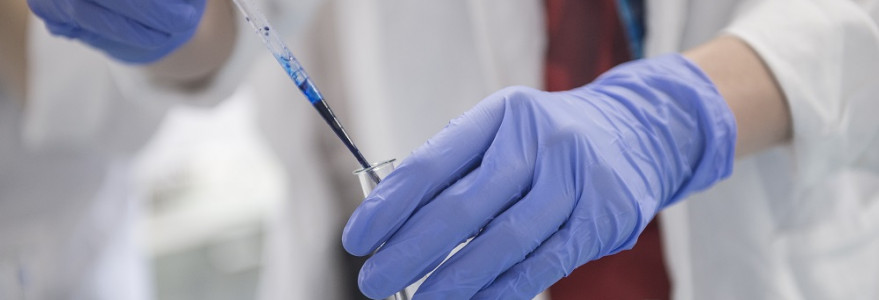
UW employees and doctoral candidates can undergo free of charge COVID-19 RT-PCR tests. Taking swabs will begin on 26th October and last until 20th November.
Employees and doctoral candidates have an opportunity to sign up for COVID-19 RT-PCR tests that detect active SARS-COV-2 infection.
I would like to express my gratitude to everyone whose efforts contributed to the possibility of testing employees and doctoral candidates of the University of Warsaw for active infection with SARS CoV-2 virus. From my own experience, I can say that a quick and effective diagnosis is key in the fight against the pandemic that we are all struggling with,” said Professor Alojzy Z. Nowak, Rector of the University of Warsaw.
Testing takes place on-site (on the Ochota campus) following the registration – according to the guideline (below).
SARS-CoV-2 RT-PCR detects viral RNA. Diagnostic tests use a mucus sample from the nose or throat. Medical personnel take a swab which will get analysed by Warsaw Genomics.
Before getting tested:
At least half an hour before taking a swab for SARS-CoV-2 virus, one should not:
- drink,
- eat,
- smoke cigarettes,
- take medications,
- brush their teeth,
- rinse mouth and nose,
- chew gum.
Testing period: COVID-19 swab collection will start on 26th October and will last until 20th November 2020.
How to register and get tested:
Step 1: Download a discount code
A discount code, which entitles employees and doctoral candidates of the University of Warsaw to get tested free of charge, can be downloaded from covid.uw.edu.pl.
Step 2: Register
After receiving the code, register at https://warsawgenomics.pl/zlecam-test-sars, and arrange an appointment via the form at warsaw-genomics.reservio.com, choosing a specific date and time.
Step 3: Undergo a test
Taking a swab will take place on the Ochota Campus, in the building of the Sports and Recreation Centre, in a separate room with a separate entrance. Tests are organised and coordinated by the University of Warsaw. Swabs are collected by medical professionals. Warsaw Genomics team will offer tests from Monday to Friday: 8 am – 7 pm as of 26th October until 20th November. On 26th October, the medical point will operate from 10 am to 7 pm.
Please note: A person should come to the swab collection facility wearing a protective mask on, with their ID and test order number, which will be generated during registration.
Step 4: Get your result
The test results will be available to patients at https://wyniki.warsawgenomics.pl/. It can take up to three business days until the results will be given. One should enter their order number (from the e-mail confirming acceptance of the SARS-CoV-2 test) and their PESEL number (or their ID number if there is no PESEL number). It will be possible to download the signed and authorized test result.
More information (in Polish) >>
Source: www.en.uw.edu.pl

